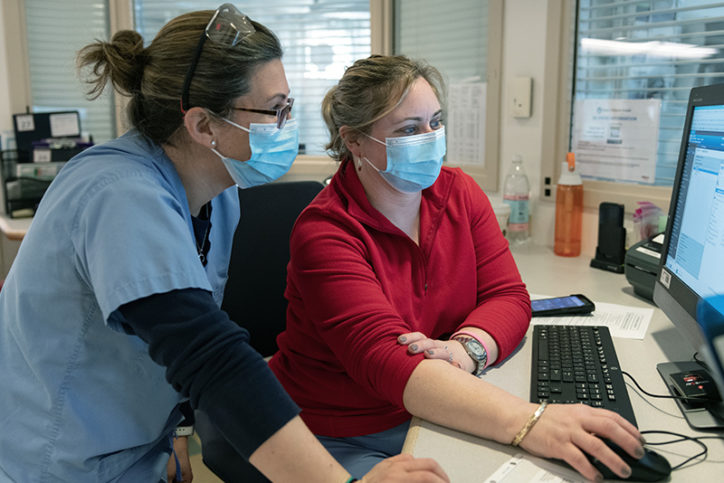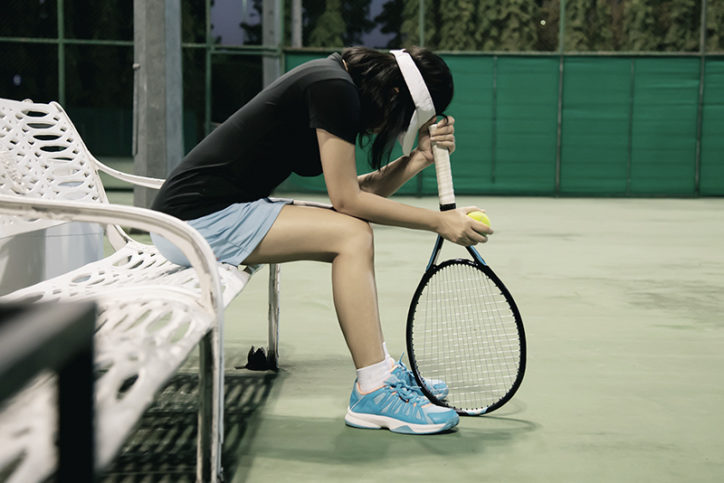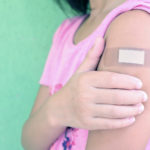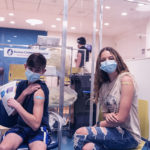Improving treatment process so kids can return to sports after COVID-19

Children can’t wait for the next game, the next tournament. Sports means many things to them, including an escape from the uncertainty and stress of the COVID-19 pandemic.
Ensuring that kids can return to sports and resume other types of competitive activities after recovering from COVID-19 has become a priority for parents, coaches, and physicians as they recognize the importance of maintaining normalcy in children’s lives. A positive test can quickly derail an athlete’s or even an entire team’s season. This puts pressure on all those involved to properly balance health and safety precautions with a child’s desire to get back into action.
Most children and teenagers have only mild symptoms of COVID-19 and play sports not long after recovery. But some have continued to have issues that prevent them from returning to sports at a level at which they had previously played. Some experience lingering symptoms and can’t resume sports at all, while others don’t notice anything wrong but the findings from cardiac testing prevent them from being cleared to play again.
Return to sports became a new type of triage call
“The nurses in the cardiac clinic were overwhelmed in the early stages of the pandemic. Some days we fielded more than a dozen hour-long calls from parents and primary care physicians who wanted to have young athletes with COVID symptoms evaluated for possible cardiac issues,” says registered nurse Sarah Atwood, clinical coordinator at the Benderson Family Heart Center’s cardiac clinic at Boston Children’s Hospital.
For instance, last year the Heart Center was asked to evaluate an entire teenage hockey team that had the coronavirus. Several players ended up needing cardiac evaluations, while others did not.
“Kids were desperate to get back to sports and parents wanted them to get back to normalcy,” says Sarah de Ferranti, MD, chief of Boston Children’s Division of Ambulatory Cardiology. “We had to determine if it was fine for them to go back to their sport, and how they should be evaluated on the types of symptoms they have.”
Handling more than 325 cases since the start of the pandemic, the clinicians in the cardiac clinic developed a “return-to-play” (RTP) algorithm. The algorithm is essentially a protocol that has streamlined the cardiac evaluations of children to determine when they can safely resume physical activities. Now, with a sound collaborative process in place, the phones aren’t ringing as often because primary care physicians have a better understanding of COVID-19 and whether their patients need cardiac evaluation and treatment at the Heart Center.

Nurses and doctors set new return-to-play guidelines
In establishing the process, Heart Center clinicians looked to guidelines created by the American Academy of Pediatrics (AAP) that suggest how, among other things, parents can support their children’s sports goals during the pandemic and what they can do once their child has a positive test result, including getting them back to physical activities.
Following the AAP guidelines, the Heart Center clinicians devised an algorithm to determine what testing would be recommended for patients based on their symptoms. The algorithm is essentially a yes-or-no decision tree. The clinic nurses then created a triage form based on the algorithm. The triage form is a list of questions that helps nurses determine which category a patient falls into, which kind of testing is recommended, and whether the patient should be seen virtually or in person.
A child with mild symptoms of COVID-19 might need only an EKG and a virtual or in-person visit before returning to play in around 10 days. A child with moderate COVID-19, including cardiac symptoms, warrants an in-person visit to the Heart Center for an EKG, echocardiogram (echo), and lab tests. Patients can be cleared to return to play in a minimum of two weeks if their test results are normal. Abnormal cardiac test results with severe symptoms of COVID-19 will trigger a three-to six-month reprieve from sports, with a return dependent on a negative follow-up ECG, echo and, in some cases, cardiac MRI.

Ensuring good health before returning to sports
Jane Newburger, associate cardiologist-in-chief and director of the Kawasaki Disease Program at Boston Children’s, credits the algorithm with improving the quality and efficiency of a previously time-consuming process. “The product of a multidisciplinary working group led by Drs. Suellen (Moli) Yin and de Ferranti, the algorithm provides practical recommendations for return to play after COVID-19 based upon the best available research data, society and expert recommendations, and input from area pediatricians.”
The Heart Center’s goal, Atwood says, is to ensure children are healthy first and then they can play sports as quickly as possible.
Primary care physicians can consult Boston Children’s algorithm. They can also call the clinical advice line, 617-355-0078, or the scheduling line, 617-355-2079, to arrange an appointment for a patient.
Related Posts :
-

COVID vaccines are here for kids ages 5 to 11. Here’s what families should know.
On November 2, 2021, the U.S. Centers for Disease Control and Prevention (CDC) signed off on the use of the Pfizer-BioNTech ...
-

Two for one: It’s safe to get COVID and flu vaccines at the same time
Your child can greatly reduce the risk of serious illness by receiving COVID and flu vaccines in one sitting — all ...
-

Returning to sports after having COVID-19
Mikey LaCroix, age 23, competes in snowboard cross for the U.S. Snowboard Team. In late 2020, he was diagnosed with COVID-19 ...
-

Save that shot and your child’s teeth: The benefits of mouthguards
Competitive sports can get intense. They can also get physical, with athletes inadvertently colliding and balls moving fast at all ...





